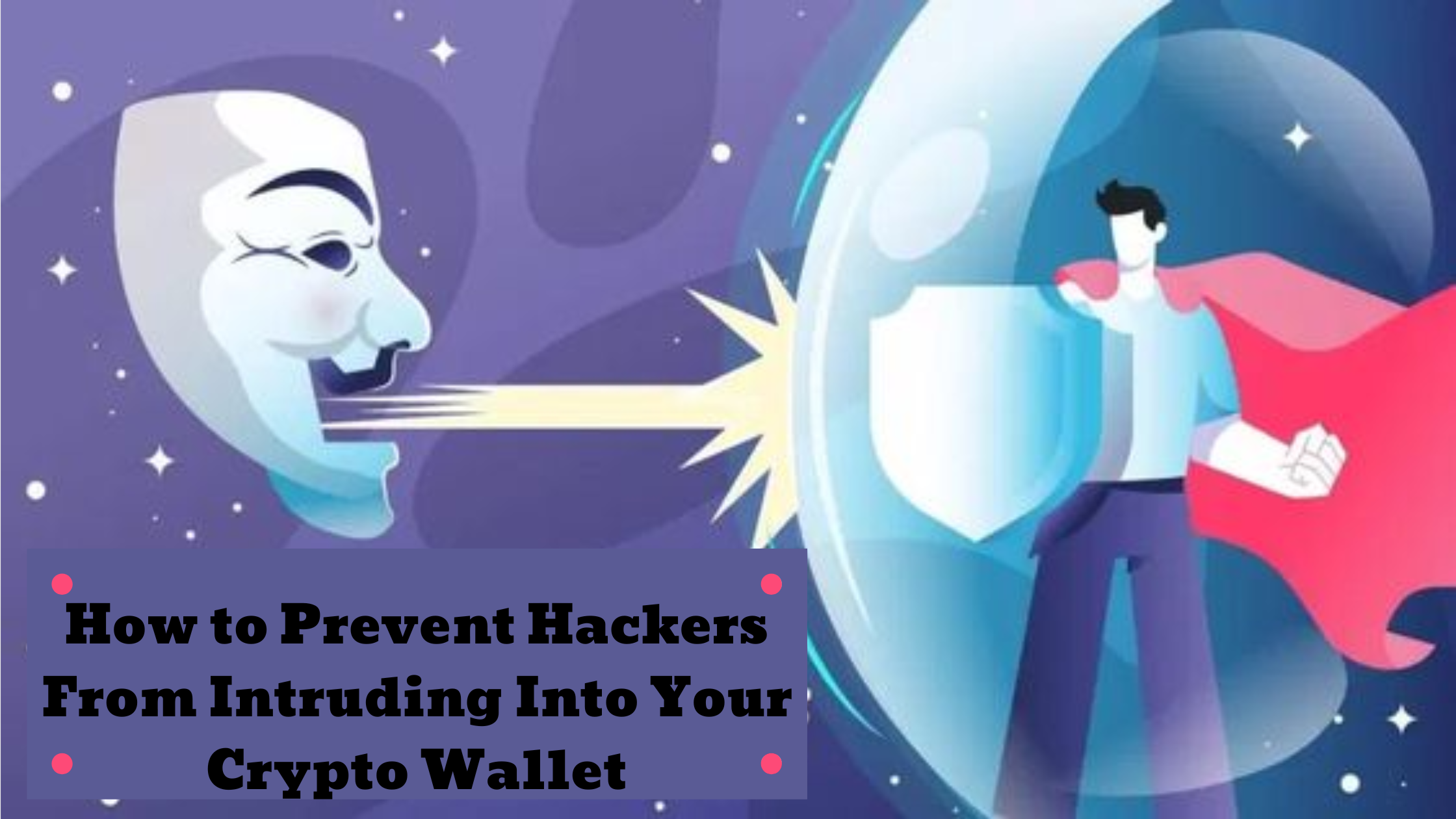If you are already into crypto or planning to enter the business, you must know that digital assets are not free from risks. Heckers are not only after your bank accounts. They are also after your precious crypto wallet. To protect yourself from cyber threats, you must understand how hackers work and take preventive measures to safeguard your wallets.
This article will discuss how to prevent hackers from intruding on your crypto wallet. Besides, you will also learn the significance of stopping the intrusion into your crypto wallet.
Why Should You Be Protective about Your Crypto Wallet?
Just like the popularity of cryptocurrency, threats associated with these are also growing. As more people invest in crypto, attackers find it a lucrative niche to fill their pockets. Since 2012, hackers stole around $3 billion from crypto exchanges. Even since the pandemic, bad actors have stolen more than $50 million in cryptocurrencies in only 12 attacks.
Hackers use numerous methods to steal crypto coins or currencies from your digital wallet. The attacks range from guessing or sealing wallet passwords to hacking into the crypto exchange.
However, stealing the private keys of any crypto wallet is the most common way to get hold of your digital assets. Hence, you must do everything possible to secure your assets and lower the risk level considering all these hacking scenarios.
How to Prevent Hackers From Intruding into Crypto Wallet
Here are some basic and advanced approaches you should follow to protect your crypto wallet.
1. Choose the Right Crypto Wallet
If you want to protect your cryptocurrency, you need to make sure you are using a secure hardware wallet. Hardware wallets are considered the best way to store digital assets as they keep your private keys offline. No one can access them unless they physically access them.
Choosing a physical device with no internet connection is highly beneficial. These do not save any of your sensitive information on the internet. So no unauthorized person can access your assets.
2. Carefully Select the Crypto Exchange
Let’s get things straight! Some crypto exchanges are more secure than others. Hence, perform your own due diligence on the NFT marketplaces or cryptocurrency exchanges. Look for news of hacking attacks on the platform and how it defended it. But, if the decentralized finance (DeFi) app could not stop it, it means inadequate safety practices or vulnerabilities exist. Such events will put your investment at risk.
Also, do not forget to read through the privacy policy of the DeFi platform to find out what measures they apply to protect their users. If a crypto exchange is highly secure, it will offer state-of-the-art security features to its customers.
3. Use a Unique Password
Once a hacker gets hold of your email, bank account, or social media password, they will definitely use it on your crypto wallets. For this reason, you should use different passwords for each website, especially for crypto wallets and exchanges.
While setting up a password for your crypto wallet, use all the standard password setting rules. Make sure your password does not include any personal information or bears similarities with other passwords you use.
4. Change Password Regularly
No matter how hard you try to protect your password, there is always a chance of it getting leaked and falling into the wrong hands. So, the best way to secure your wallet password is to set a complex one. Also, you need to store it in a safe place and change it regularly.
You can set an alert on your phone to change the passwords once a week. Also, avoid reusing old passwords for your crypto wallets.
5. Keep Your Assets Distributed in Multiple Wallets
Crypto is your valuable asset, and like your other assets, you should not put all of them in a single platform or wallet. It is a wise practice in terms of both investment and security.
Always put your cryptocurrencies in multiple wallets by choosing different hot and cold storage. By distributing all the savings in various cryptocurrency wallets, users can ensure not getting affected so much if any one wallet gets compromised.
6. Use Multi-Factor Authentication (MFA)
Many businesses and technologies have adopted multi-factor authentication or MFA to defeat password phishing, hacking, and scamming attacks. Hence, being a cryptocurrency holder or wallet user, you can also trust this sophisticated and multi-layered security system that does not require any extra investments.
MFA utilizes passwords, login IDs, user IDs, mobile phone-based tokens, SMS-based tokens, and biometrics to protect your digital assets. So, if an attacker somehow figures out your account ID and password, they will not still be able to access your crypto wallet without the real-time token and biometric credentials.
7. Stay Safe from Phishing
Phishing is a well-known attack on crypto wallets. Here, hackers obtain your sensitive information by posing as a legitimate entity. You should only log in to your crypto exchange when you are sure the website is original.
It is wise to bookmark the website URL or type it manually. Also, do not share information while asked through emails, SMSs, or chats.
8. Keep Your Personal Account and Cryptocurrency Separate
If you are dealing with cryptocurrency, keep the trading devices and accounts separate from your personal and work ones. Use a dedicated email address instead of a work email to operate the wallet, so there will not be a chance of losing that account.
Also, do not access your crypto wallet using a work or public computer. If you are unable to manage a dedicated smartphone or laptop for your crypto business, at least use your personal computer and smartphone.
9. Disable Auto-Login for Apps and Websites
Many people use Duo Security or Google Authenticator for two-factor authentication (2FA). If you are one of them this point is particularly important for you. Hackers often use phishing emails to dupe you and make you enter a 2FA code into a fake website or app.
They also use various malware programs like keyloggers to steal your data and access your crypto wallet. To avoid these incidents, you must disable all automatic logins to websites and apps. Make sure to enter your username and password manually each time you access the account.
10. Avoid Public Wi-Fi
Public Wi-Fi might not cost you any money, but it can end up costing your valuable digital assets like cryptocurrencies. Never use public Wi-Fi to access cryptocurrency wallets or exchanges.
Such Wi-Fi connections are less secure than private networks.
As a result, hackers can easily access your information when you use your crypto wallets with public Wi-Fi. So, always use a private internet connection for your safety, even if it costs you some money.
11. Do Not Disclose Your Wallet Info to Others
Sharing your success stories on cryptocurrency investments on social media is definitely tempting. However, bragging about your achievements on different online platforms will only invite hackers. That is why many people trade crypto anonymously to eliminate any connection to their original identity.
Likewise, you should also be discreet about your crypto trading and refrain from posting any information about your trading-related activity such as your crypto wallet, trading exchange, gains, and losses.
12. Backup Your Wallets
You must be aware of the benefits of having your data backed up. Backups are also useful for your crypto wallets. When it comes to the private keys of your wallet, you should always keep it offline. But at the same time, you must keep an offline backup of these keys for additional security.
Furthermore, users should store a key backup outside their homes, preferably in a bank’s safe. This way, they will not lose them even in case of any local calamity fire, earthquake, or flood.
13. Install Automatic Updates
No matter which device you decide to use for storing your digital assets, always keep it updated with the latest software and firmware. You can enable settings that will automatically install the updates. Thus, even if you forget to update the software manually, there will be no harm done to your wallet.
Besides the device and the applications installed on it, you should have updated end-point security measures. You should use the latest versions of anti-malware and anti-virus tools for maximum protection.
14. Use a VPN
If you are looking for extra protection against cyber attacks on your wallet, using a virtual private network (VPN) is a great measure. This adds an additional layer of security to all the activities you do online.
As you use a VPN to connect to the internet, your data get encrypted and less vulnerable to hackers. Additionally, it hides your IP address and location to avoid tracking your activities. Therefore, experts suggest using a VPN while performing any crypto0related activities online.
15. Keep Yourself Updated
Hacking attacks are constantly evolving, and therefore, you need to apply new methods to protect against them. Therefore, it is highly recommended to monitor the news for updates on cyber attacks or crypto hacking threats.
Those who use crypto wallets should stay updated on hacking news. If you can learn about any attack immediately after it took place, you can respond quickly before your wallet becomes vulnerable.
Wrapping Up
It is not easy to keep your cryptocurrency safe even in the crypto wallet. Hackers use evolving techniques to get into your wallets such as phishing, social engineering, and brute force. Make sure to follow all the above-mentioned precautions to keep your crypto wallet protected.


